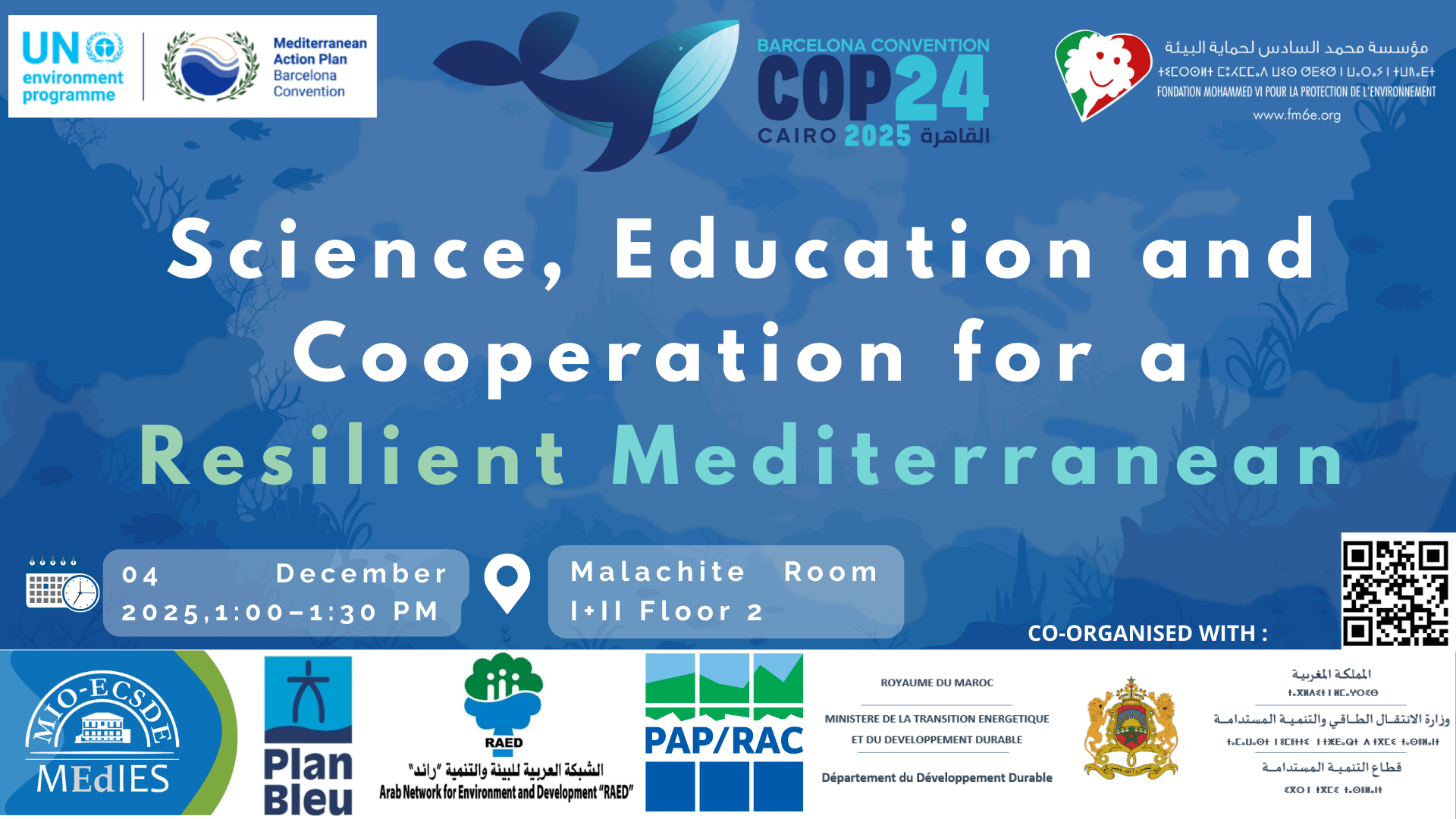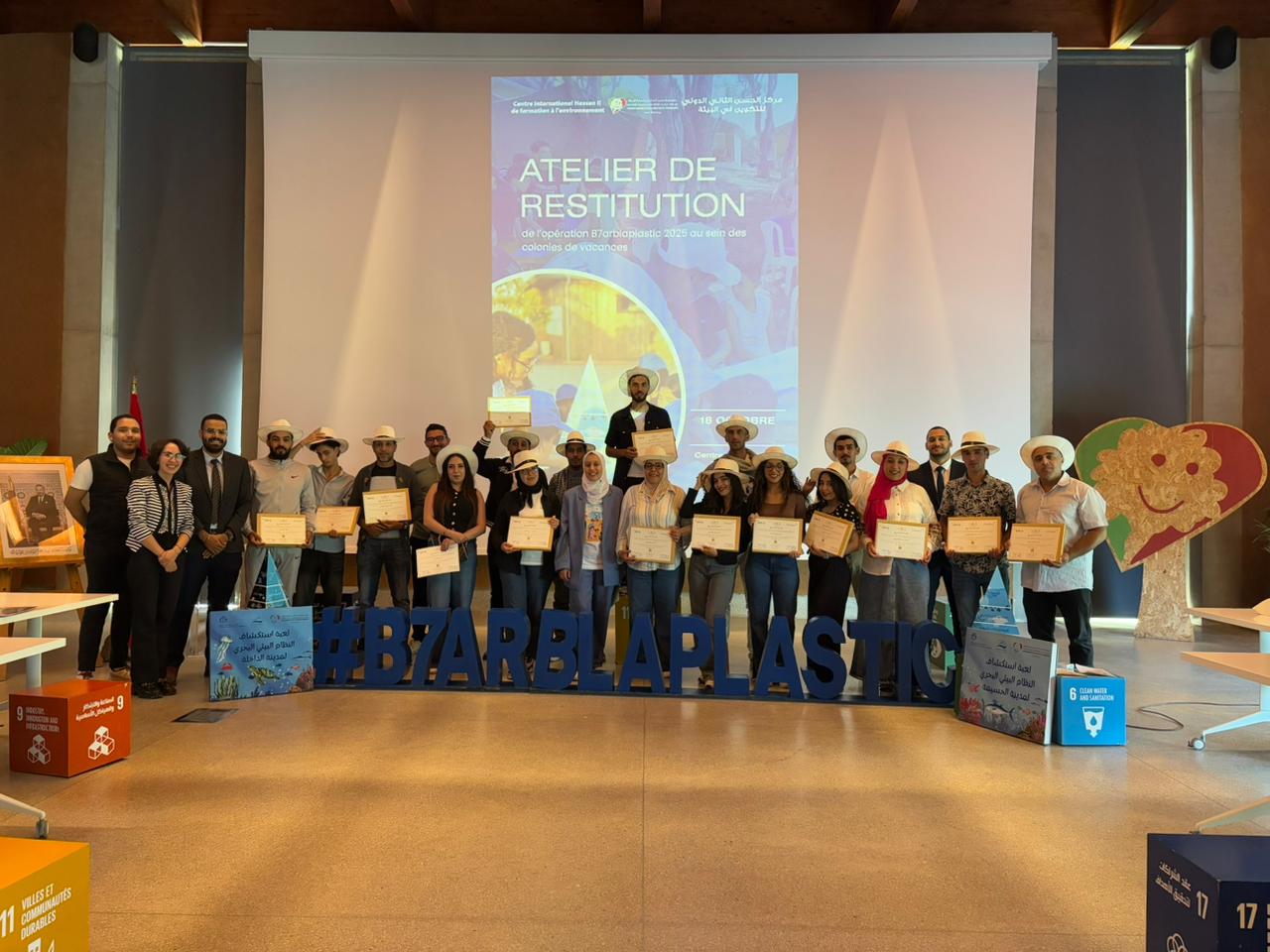
The 7th World Environmental Education Congress (WEEC 2013), a great success, will take place in Marrakech from June 9 – 14, 2013
Under the High Patronage of His Majesty King Mohammed VI and under the Chair held by Her Royal Highness Princess Lalla Hasnaa, President of the Mohammed VI Foundation for Environmental Protection (FM6E), very aware of environmental education’s role, has ensured that the Kingdom hosts WEEC for its ten year anniversary.
Nearly 1,500 delegates from around the world are expected to participate for one week at the 7th WEEC in Marrakech, an event where experts come to discuss and exchange experiences on the important issue of education and environmental awareness.
The theme of this year, entitled Cities and Rural Areas: Seeking Greater Harmony, is particularly acute in Morocco. The country is facing a rural exodus problem, with people moving from rural areas to cities at a rapid rate.
Worldwide, this migration has been growing at unprecedented speed. Immigrants are fleeing poverty, hunger, cultural intolerance, conflict and the effects of environmental degradation. They also seek new opportunities. This exodus is rapidly growing cities, endangering their balance and sustainability.
In cities and in rural areas, social relations are under strain, exacerbated by differences in lifestyles and opportunities. However, rural-urban migration can also bring benefits, releasing issues such as rural land congestion and fragmentation. The borders between cities and rural areas are becoming increasingly blurred, both physically and culturally.
What can environmental educators do to solve these problems? This is what experts will discuss at the 7th WEEC. They will also discuss eleven other contemporary themes or thematic niches, such as communications and the impact of social media, social movements and building green societies, green economies, and how to reconcile the economy and ecology.
The WEEC 2013 will host renowned speakers, such as Irina BOKOVA, Director-General of UNESCO; Achim STEINER Executive Director of UNEP, Director David ORR, distinguished professor of environmental and political studies; Paul SEARS, author of seven books on the environment; Gunter Pauli, author of children’s fables who has sold over 100 million copies; Vandana SHIVA, environmentalist, writer, and Indian feminist; Haidar EL ALI, Senegalese environmentalist and President of the NGO Oceanium, who is considered one of a hundred most influential environmentalists in the world; Najib Saab, Secretary General of the Arab Forum for Environment and Development (AFED); and Houria Tazi Sadeq, UNESCO Interdisciplinary Chair in Sustainable Water Management Resources and President of the Maghreb-Mashreq Alliance for Water (ALMAE); etc.
This WEEC seventh edition puts the ochre city in the limelight, and publicizes environmental causes in Morocco, including the Mohammed VI Foundation for Environmental Protection’s continuous action since 2002. Today, the FM6E coordinates twenty projects with education as a fundamental component.
The 7th WEEC
The unique global WEEC Congress, which takes place every two years, establishes the main environmental education experiences per subject, and presents them to the world. The 2013 event develops crosscutting issues to illustrate the relationship between cities and rural areas: seeking greater harmony, and involves eleven thematic niches that embrace intercultural dialogue from ethics to health. The themes can therefore include a variety of important subjects that fascinate educators and environmental professionals.
The WEEC is celebrating its tenth anniversary with the 2013 edition. The first congress was held in Portugal in 2003. Editions that followed were held in Brazil in 2004, Italy in 2005, South Africa in 2007, Canada in 2009, and Australia in 2011 (for more information about previous editions: www.environmental-education.org).
The 2013 event therefore represents a new opportunity to offer a national and international audience the latest thinking and best practices and to share experiences on issues related to environmental education.
To promote cultural diversity, the congress is multilingual with four official languages: Arabic, French, English, and Spanish. It is organized based on environmental principles: zero carbon, zero waste, and local food.
www.weec2013.org
The eleven thematic niches:
1. Promoting environmental education and strengthen networking
2. Intercultural dialogue
3. Social movements and building green societies
4. Communications and the impact of social media
5. Green economies
6. Ethics, eco-philosophy, and human – nature relationships
7. Greening education
8. Creative impulses
9. Teaching and learning
10. Research in environmental education
11. Risk, health and environment


B7arBlaPlastic 2025 – Feedback Workshop from Summer Camps

Summer Heroes: Committed Training for Plastic-Free Beaches

Plages Propres: Immersive Training in Service of an Exemplary Coastline

National and International Awards of the Young Reporters for the Environment: Moroccan Youth at the Forefront of Ecosystem Protection

In Nice, the Mohammed VI Foundation for Environmental Protection Participates in the 3rd Ocean Conference

Green Time: The roots of tomorrow are planted today !

The Foundation Engages Youth to Enrich Morocco’s NDC 3.0

Green Time: The roots of tomorrow are planted today !



















































